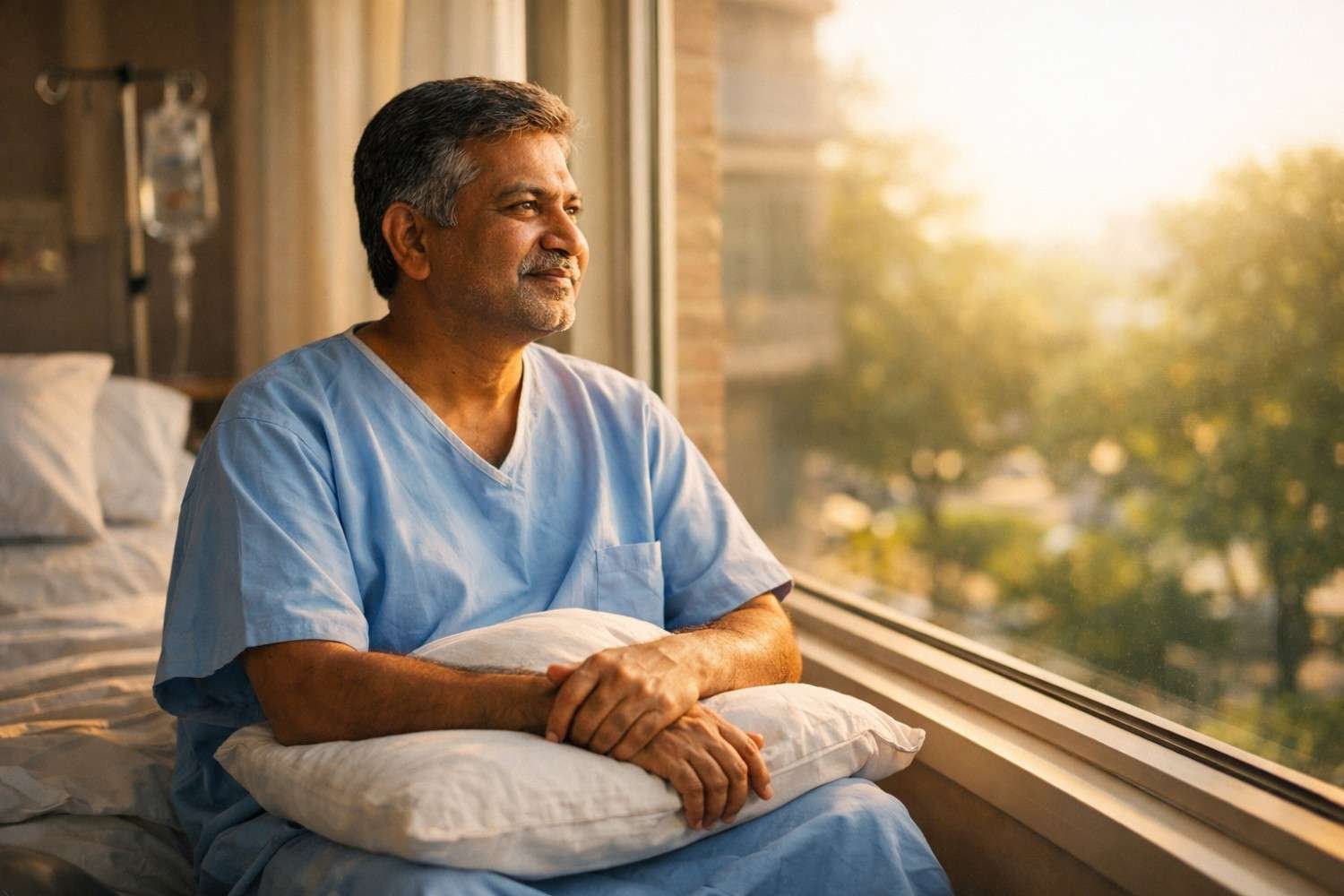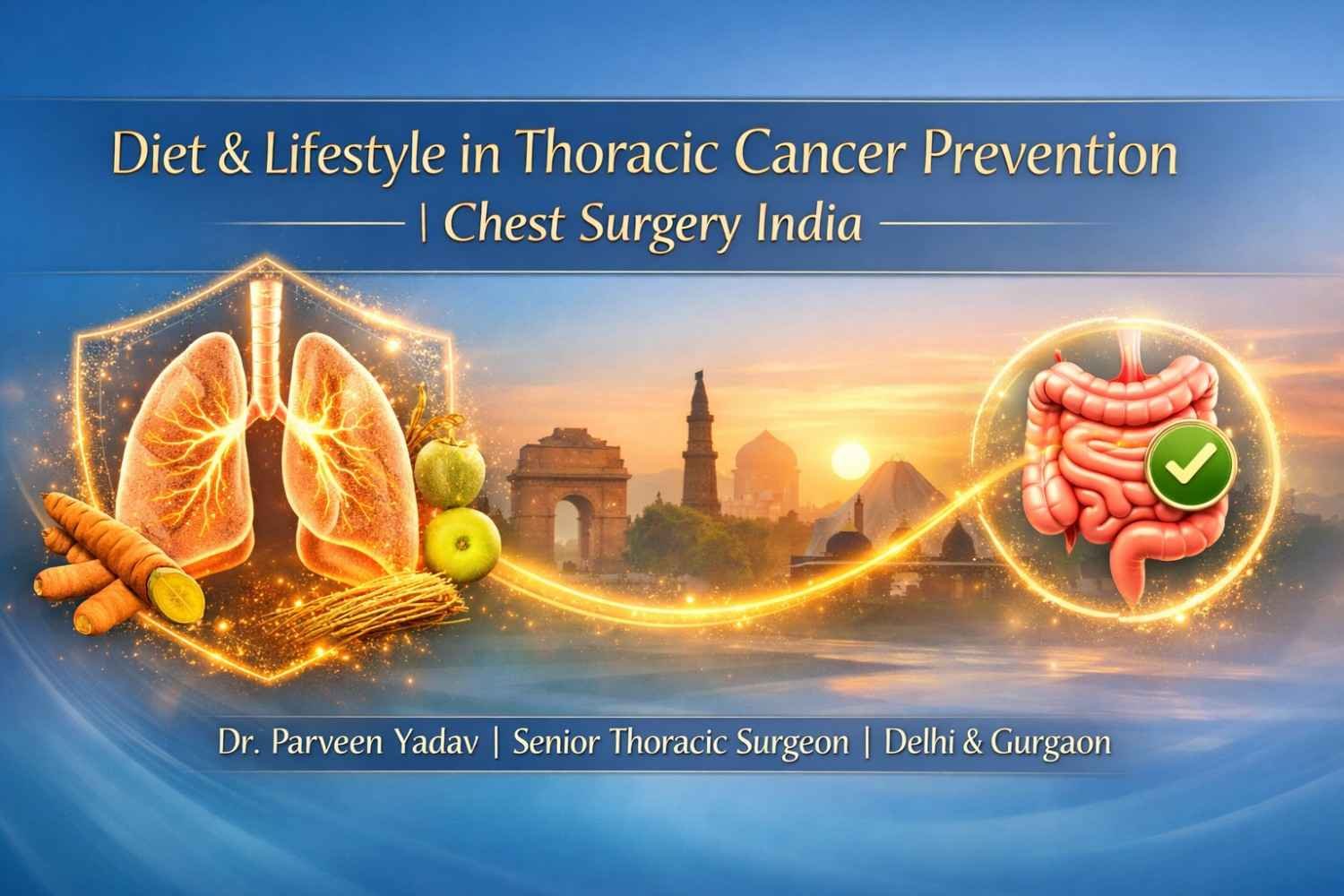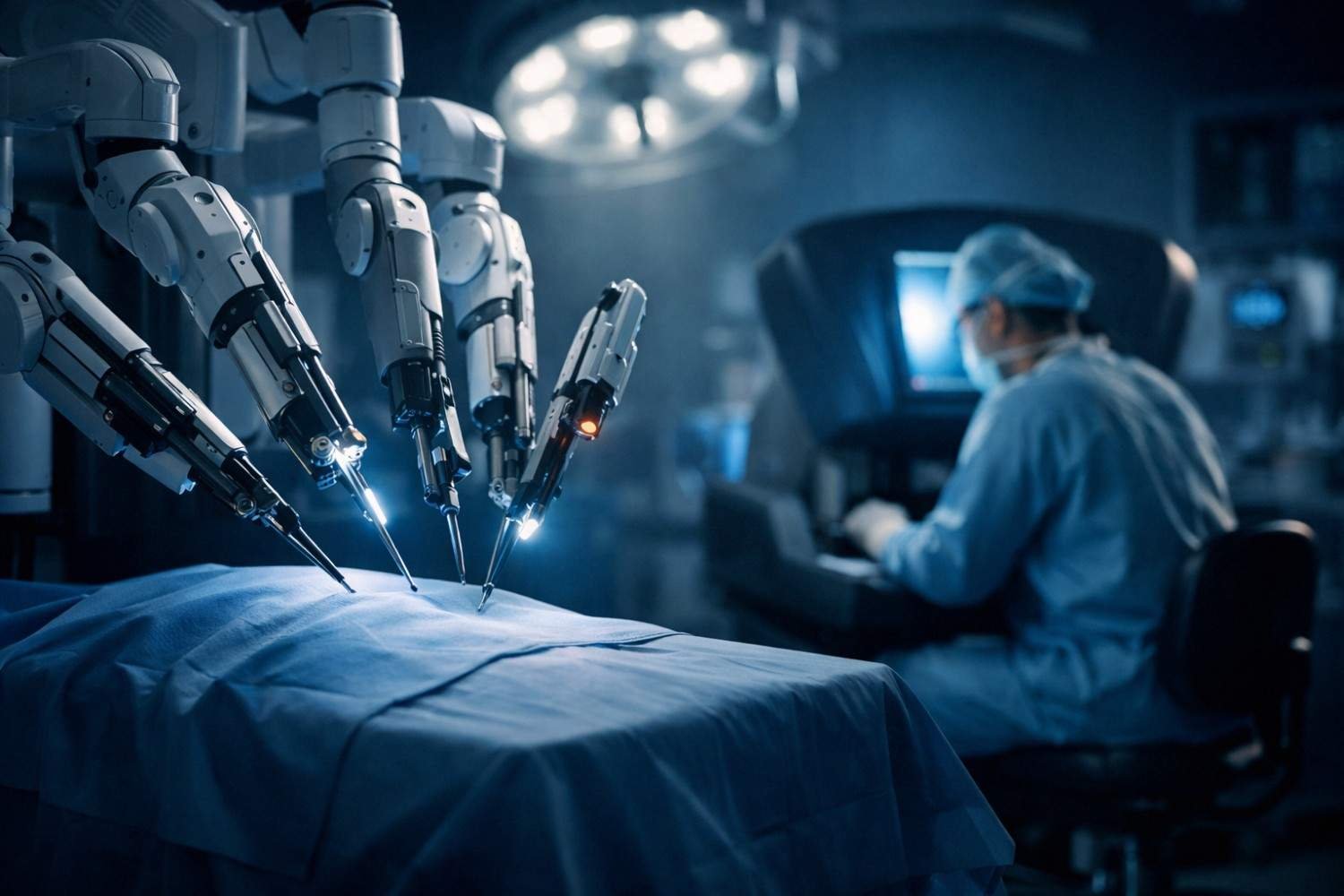

Living with esophageal cancer can be an overwhelming and challenging journey for both patients and their loved ones. Understanding the necessary lifestyle adjustments and seeking proper support are crucial to coping with this diagnosis. This guide will explore key lifestyle changes, support systems, and how to maintain quality of life throughout treatment and recovery. For a more in-depth understanding of treatment options, read Esophageal Cancer Treatment Modalities: A Complete Guide, which covers all the types of treatment available for esophageal cancer.
Esophageal cancer occurs when malignant (cancerous) cells develop in the esophagus, the tube linking the throat to the stomach. Early detection plays an essential role in improving treatment outcomes. Dr. Parveen Yadav, a renowned expert in chest surgery, emphasizes the importance of personalized treatment plans for esophageal cancer tailored to each patient's specific needs. These plans consider the type of cancer, its stage, and the patient's overall health.
Adopting a nutrient-rich, easy-to-swallow diet is essential for individuals with esophageal cancer, especially as the condition may cause swallowing difficulties. Dietary recommendations include:
Soft Foods & Liquids: To minimize discomfort during meals, incorporate soft, easy-to-digest foods such as purees, soups, smoothies, and soft fruits like bananas and avocados.
Frequent Small Meals: Instead of three large meals, eat smaller, more regular meals to ease digestion and sustain energy levels throughout the day.
Nutritional Supplements: For patients experiencing severe weight loss or malnutrition, high-calorie dietary drinks or supplements can help maintain essential nutrients. Consult a nutritionist for personalized advice.
Staying hydrated is critical, particularly if treatments like chemotherapy or radiation cause dry mouth or difficulty swallowing. Aim to drink water frequently and include hydrating foods like broths or electrolyte-infused drinks. If hydration is challenging, healthcare professionals may recommend IV fluids.
Physical exercises like walking or stretching can improve energy levels and enhance emotional well-being. They also help maintain muscle strength and can decrease treatment-related fatigue. It is essential to consult your healthcare team to determine a safe level of activity suited to your individual health condition.
Breathing Exercises: As esophageal cancer and its treatments may affect breathing, incorporating breathing exercises or pulmonary rehabilitation may be beneficial to strengthen lung capacity.
Physiotherapy: If muscle weakness becomes a concern, a physiotherapist can guide you through exercises to regain strength and mobility.
Mental health is a crucial aspect of cancer care. Esophageal cancer can trigger a range of emotions, including anxiety, fear, and depression. Prioritizing emotional well-being through the following strategies can improve overall quality of life:
Therapy and Counselling: Speaking with a professional counsellor or therapist can help manage emotions and reduce stress.
Support Networks: Engaging in support groups, whether in-person or online, allows patients to connect with others who understand their journey, offering camaraderie and shared experiences.
Proper sleep is essential in cancer care, allowing the body to heal. Fatigue is a common side effect of treatments, so developing healthy sleep routines, such as going to bed at the same time each night and neglecting stimulants like caffeine before bed, can enhance sleep quality. Consider relaxation techniques like meditation or guided imagery to manage insomnia.
A strong support network of family and friends can make a difference. Their encouragement, understanding, and assistance with daily tasks help alleviate stress and improve mental well-being. Caregivers also play an integral role in ensuring medical adherence and helping with lifestyle adjustments, such as dietary changes.
Connecting with cancer support groups in person or online can offer emotional relief and practical advice. Many individuals find comfort in talking to others who have experienced similar challenges. These groups allow sharing of coping mechanisms, treatment experiences, and emotional struggles, fostering a sense of community.
Regular follow-ups with your oncologist, surgeon, and other healthcare team members are essential for monitoring progress and adjusting treatment as needed. Communicating openly about any side effects, pain, or concerns is vital. This ensures timely interventions and optimizes treatment outcomes.
In addition to conventional treatments, many patients enjoy exploring complementary therapies to manage symptoms and improve overall well-being. Consider the following:
Acupuncture: Often used to manage pain, nausea, and fatigue, acupuncture is becoming a popular complementary therapy among cancer patients.
Yoga and Meditation: These practices can reduce stress, promote relaxation, and improve mental clarity. Deep breathing exercises, in particular, can help manage anxiety and emotional stress.
Always consult your healthcare team before adding alternative therapies to your regimen to avoid any potential interactions with cancer treatments.
Living with esophageal cancer requires a comprehensive approach that combines lifestyle adjustments and a robust support system. Dr. Parveen Yadav, an expert in chest surgery, and the compassionate care provided by Chest Surgery India offer hope and guidance for those navigating this challenging journey. Patients can enhance their quality of life by adopting dietary modifications, engaging in light physical activity, prioritizing emotional well-being, and building a solid support network. Embracing these changes and seeking medical and emotional support empowers individuals to move forward with resilience and strength.
1. Can esophageal cancer be prevented?
Ans: While there's no guaranteed way to prevent oesophagal cancer, maintaining a healthy lifestyle, avoiding tobacco and excessive alcohol consumption, and handling conditions like GERD (acid reflux) can lower the risk.
2. What are the common symptoms?
Ans: Symptoms may include difficulty swallowing, unintentional weight loss, chest pain, persistent heartburn, and hoarseness. Early detection improves the chances of successful therapy.
3. How is esophageal cancer diagnosed?
Ans: Diagnosis usually involves an endoscopy, imaging tests (like CT scans), and biopsies. Dr. Parveen Yadav and the team at Chest Surgery India emphasize the importance of early, accurate diagnosis to devise the most effective treatment plan.
4. What treatment options are available for esophageal cancer?
Ans: Treatment options vary depending on the cancer's stage and may include surgery, chemotherapy, targeted therapies, or a combination of these treatments.
5. How can caregivers support individuals with esophageal cancer?
Ans: Caregivers can assist with daily activities, provide emotional support, and ensure adherence to treatment schedules. Open communication and understanding are vital to delivering effective care.
Dr. Parveen Yadav is a highly recommended surgeon or specialist for esophageal cancer in Gurgaon, Delhi. He specialises in minimally invasive and robotic thoracic onco surgery. He has been recognised for 17+ years as the best chest surgeon in India for his expertise in treating chest-related (Chest Surgery) ailments, such as Esophageal (Food Pipe Cancer), Lung, Tracheal (Throat), Chest wall tumours, Mediastinal Tumours, Empyema, and Bronchopleural Fistula cancer. With a focus on precision and innovation, he is dedicated to offering exceptional care to his patients, utilising techniques to ensure optimal outcomes.

18+ Yrs Exp | 5,700+ Thoracic & Robotic Cancer Surgeries
Dr. Parveen Yadav is a Director and Senior Consultant in Thoracic and Surgical Oncology, specializing in minimally invasive and robotic lung and esophageal surgeries, with advanced training from AIIMS and Tata Memorial Hospital.
View Full Profile Pain After Thoracic Surgery: Tips for Smooth Recovery
Pain After Thoracic Surgery: Tips for Smooth Recovery
 Diet & Lifestyle for Thoracic Cancer Prevention | Dr. Parveen Yadav
Diet & Lifestyle for Thoracic Cancer Prevention | Dr. Parveen Yadav
 Robotic Thoracic Surgery: How Da Vinci Technology is Revolutionizing Chest Procedures
Robotic Thoracic Surgery: How Da Vinci Technology is Revolutionizing Chest Procedures
Struggling with pain after chest surgery? Dr. Parveen Yadav shares expert recovery tips, causes of shoulder pain, PTPS signs, and what your discharge sheet won't tell you.
Discover how diet, breathing exercises & daily habits help prevent and recover from thoracic cancer. Expert insights from Dr. Parveen Yadav, Chest Surgery India
Discover how Da Vinci robotic surgery is transforming chest procedures in Gurgaon. Less pain, faster recovery & expert care by a certified thoracic surgeon
Copyright 2026 © Dr .Parveen Yadav all rights reserved.
Proudly Scaled by Public Media Solution!